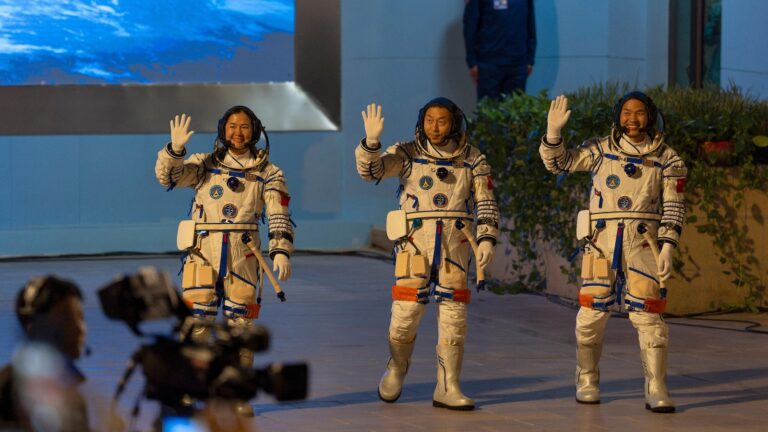Jiuquan, China — China declared “complete success” after launching three new crew members to the orbiting space station early Wednesday morning as it seeks to expand its space exploration with missions to the moon and beyond.
The Shenzhou 19 spacecraft, carrying three people, took off from the Jiuquan Satellite Launch Center in northwestern China at 4:27 a.m. local time aboard a Long March 2F rocket, the backbone of China’s manned space missions.
“The crew members are in good condition and the launch was a success,” state broadcaster China Central Television said in a statement.
China built its own space station after being removed from the International Space Station, largely due to U.S. concerns about the People’s Liberation Army, whose military wing of the Chinese Communist Party has total control over the space program. China’s moon program is part of increasing competition with the United States and other countries, including Japan and India.
The team of two men and one woman will replace the astronauts who have lived on the Tiangong space station for the past six months. He plans to stay there until April or May next year.
The new mission commander, Tsai Xuezhe, went to space on the Shenzhou 14 mission in 2022, while the other two, Song Lingdong and Wang Haoze, are the first space travelers born in the 1990s.
Mr. Song was an Air Force pilot, and Mr. Wang was an engineer at the China Aerospace Technology Corporation. Wang will serve as the crew’s payload specialist and become the third Chinese woman to fly on a manned mission.
In addition to putting a space station into orbit, the Chinese Space Agency has also landed a probe on Mars. China aims to land a man on the moon by 2030, which would make China the second country after the United States. There are also plans to build a research station on the moon, which is already the first in the world to transport rock and soil samples from the little-explored far side of the moon.
The United States continues to lead in space exploration, with plans to land astronauts on the moon for the first time in more than 50 years, but NASA pushed back the target date to 2026 earlier this year.
The new crew will perform spacewalks and install new equipment to protect the station from Chinese-created space debris and other debris.
NASA said the large debris was caused by a “satellite explosion and collision.” In 2007, China launched a rocket to destroy surplus weather satellites, and in 2009, an “accidental collision of American and Russian communication satellites” significantly increased the amount of large debris in orbit, the paper said. said.
China’s space authorities said they were taking steps in case astronauts had to return to Earth early.
China launched its first manned mission in 2003, becoming the third country after the former Soviet Union and the United States. The space program is a source of great national pride and a symbol of China’s technological progress over the past two decades.

